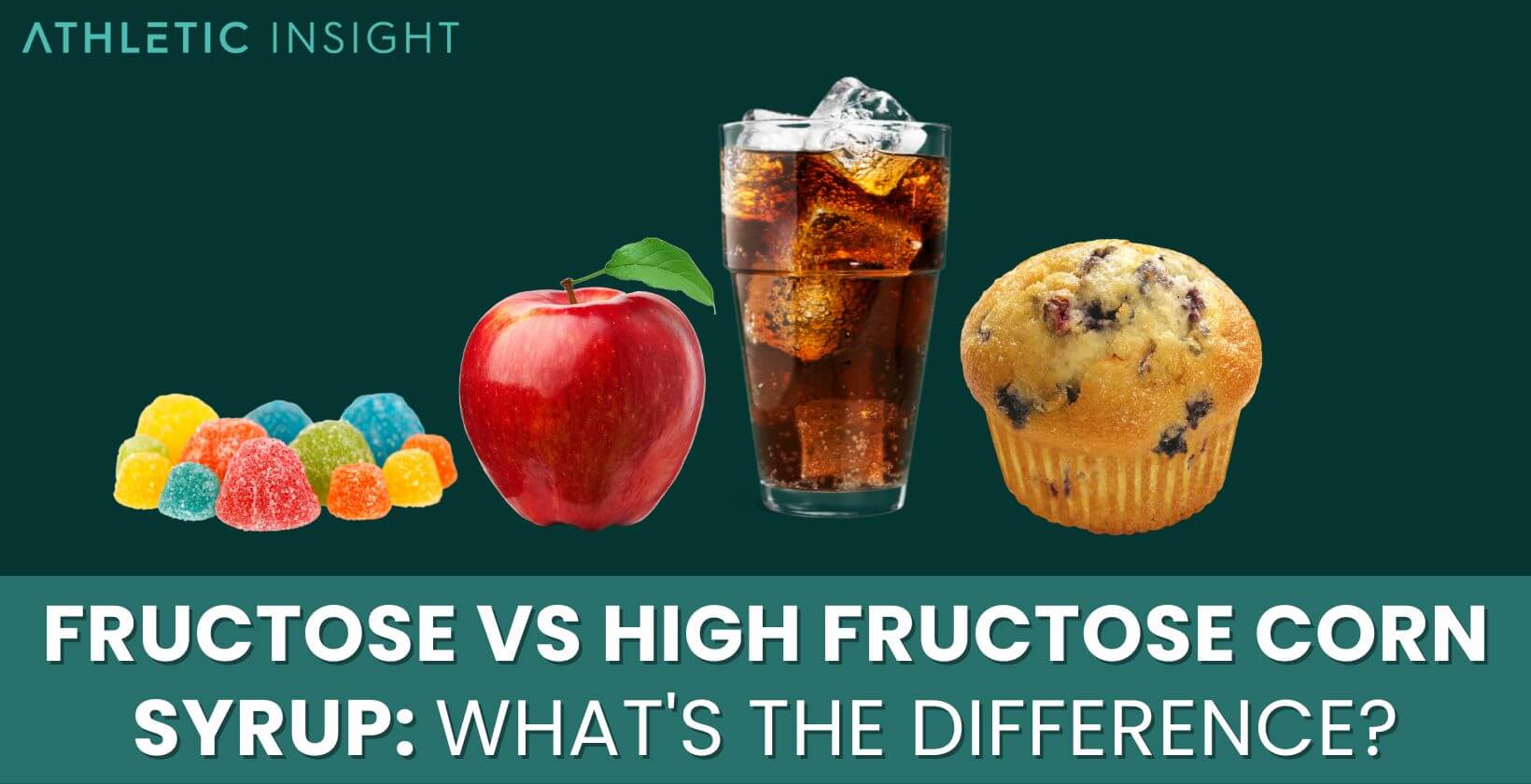Unraveling the world of sweeteners, it’s easy to stumble upon two major players: fructose and high fructose corn syrup, but what exactly sets them apart? This article on fructose vs high fructose corn syrup discusses their basic chemical compositions, highlights the stark contrast between naturally occurring fructose and industrially created high fructose corn syrup while brushing over their differing structures. Learn how these two sweeteners influence not just your favorite foods, but your health as well.
What is the difference between fructose and high fructose corn syrup?
The key distinction between fructose and high fructose corn syrup lies in their chemical composition and how they’re produced. Fructose is a simple sugar found naturally in fruits and vegetables. High fructose corn syrup, contrariwise, is not a naturally occurring substance. It’s a sweetener that’s industrially created from corn. Structurally, there’s a notable difference between natural fructose and high fructose corn syrup.
Fructose is monosaccharide, meaning it’s composed of one sugar molecule. High fructose corn syrup, on the other hand, is a mixture of fructose and glucose monosaccharides. Comprehending these differences between “natural fructose versus industrial fructose” enhances your understanding of fructose and its effects on the body.
How does the body metabolize fructose and high fructose corn syrup differently?
When it comes to the metabolism of fructose and high fructose corn syrup, they follow different metabolic pathways in the human body. One distinguishing factor is the insulin response that these two sugars elicit. Natural fructose, found in fruits, does not stimulate insulin secretion immediately after ingestion. High fructose corn syrup, on the other hand, signals an instant release of insulin, the hormone primarily responsible for regulating glucose in the bloodstream.
Secondly, pure fructose is changed to fat and organic acids in the liver, whereas high fructose corn syrup is directly absorbed into the bloodstream, leading to blood glucose spikes. Essentially, the varied structures of these two types of sugars impact how they are metabolized and absorbed into the system.
The Corn Refiners Association emphasizes the importance of understanding these metabolic differences as they significantly affect health outcomes. By comprehending the distinct ways the body processes natural fructose and high fructose corn syrup, you can make better dietary choices and potentially mitigate risks associated with sugar consumption. Specific ramifications on blood glucose levels due to these types of sugars reveal noteworthy concerns, but adopting informed dietary decisions can help in managing these potential sugar-related health complications.
What are the health effects of consuming high fructose corn syrup and fructose?
High fructose corn syrup (HFCS) consumption is closely related to obesity, according to recent research. It’s an alarming fact considering the increasing prevalence of obesity. Moreover, your intake of fructose can influence your risk of developing diabetes. Scientific evidence established a mechanistic link between abnormal fructose metabolism and both type 1 and type 2 diabetes.

Furthermore, the regular mere presence of HFCS in your diet could lead to hypertension. Similarly, fructose consumption may be linked to detrimental effects on blood pressure, a factor that may heighten heart disease risks. Even more concerning, fructose could also induce insulin resistance, a precursor for type 2 diabetes. This means your body might struggle to regulate glucose, potentially leading to dangerous health complications.
How is high fructose corn syrup used in the food industry?
High fructose corn syrup (HFCS) is a popular sweetener, often chosen over sugar by industries due to its significant cost-effectiveness and shelf stability. Extensive in its use, HFCS is found in an alarming mix of beverages, condiments, and even bread.
It’s not simply a story of sweetness though. When assessing high fructose corn syrup nutrition facts, there are startling shifts versus standard sugar. To cite something specific, a typical soda hiked with HFCS routinely packs more calories than its sugar-sweetened counterpart. This variance in nutrition facts is a pivotal factor to note in the health discourse. Understanding the distinction between pure fructose and high fructose corn syrup, as the Corn Refiners Association urges, ensures more informed food choices.
Is High Fructose Corn Syrup more harmful than regular fructose?
There’s ongoing debate about whether High Fructose Corn Syrup is more harmful than other forms of sugar, including fructose. Some studies suggest that the body processes HFCS differently than it does other forms of sugar, potentially leading to greater fat accumulation and health risks.
However, other research indicates that the health effects are similar when consumed in comparable amounts. The consensus among many health experts is that the primary concern is the overconsumption of added sugars in general, regardless of the type.
Why is High Fructose Corn Syrup used so widely in food products?
High Fructose Corn Syrup is widely used in food and beverage industries mainly because it is cheaper than sugar and has certain functional advantages. It’s sweeter and more soluble than regular sugar, making it ideal for sweetening beverages and processed foods. Additionally, it provides a desirable texture to baked goods and prolongs shelf life.
Can consuming High Fructose Corn Syrup lead to health problems?
Yes, excessive consumption of High Fructose Corn Syrup, like any other added sugars, is linked to a range of health issues. These include obesity, type 2 diabetes, heart disease, and non-alcoholic fatty liver disease. The concern is primarily related to the amount of added sugars in the diet rather than HFCS specifically.
How can I reduce my intake of High Fructose Corn Syrup?
To reduce High Fructose Corn Syrup intake, it’s advisable to limit consumption of processed foods and beverages that contain it, such as soft drinks, candy, sweetened yogurts, and certain baked goods. Reading food labels can help identify products with HFCS. Shifting towards a diet rich in whole foods, including fruits, vegetables, and whole grains, is also beneficial.
What is the difference between high fructose corn syrup and glucose?
High fructose corn syrup (HFCS) and glucose are both sugars but differ significantly in their composition and impact. High fructose corn syrup, a sweetener derived from corn starch, contains a mixture of fructose and glucose and is widely used in processed foods; its excessive consumption is linked to various health issues like obesity and diabetes. In contrast, glucose is a simpler sugar, crucial for energy in the body, but its overconsumption, especially in processed forms, can also lead to health problems. So, when considering glucose vs high fructose, always choose the natural compound of glucose.



